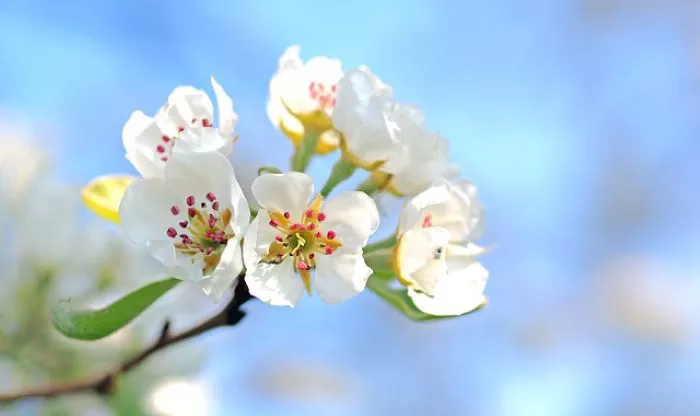Flowers have captivated humans for centuries. Their beauty, fragrance, and symbolism resonate deeply within us. From ancient civilizations to modern societies, flowers have held a special place in our hearts and cultures. This article explores the reasons behind our love for flowers, including their aesthetic appeal, emotional impact, cultural significance, and the benefits they bring to our lives.
Aesthetic Appeal of Flowers
One of the primary reasons we love flowers is their stunning beauty. Flowers come in a wide variety of shapes, sizes, and colors. This diversity allows for endless combinations and arrangements. The vibrant hues of tulips, the delicate petals of cherry blossoms, and the intricate designs of orchids all contribute to their visual allure.
The natural symmetry and patterns found in flowers often evoke feelings of harmony and balance. This aesthetic appeal can enhance our surroundings, making spaces feel more inviting and cheerful. Gardens filled with blooming flowers can uplift our spirits and provide a sense of peace and tranquility.
Fragrance and Sensory Experience
In addition to their visual beauty, flowers often emit delightful fragrances. The scents of flowers can evoke strong memories and emotions. For example, the smell of roses may remind someone of a loved one, while the scent of lilacs might bring back childhood memories of spring.
Fragrance plays a significant role in our connection to flowers. Many people associate certain scents with positive experiences, such as weddings, celebrations, or moments spent in nature. This sensory experience enhances our appreciation of flowers and contributes to our overall well-being.
Emotional Connection
Flowers have a unique ability to convey emotions. They can express feelings that words sometimes cannot. When we give or receive flowers, we often feel a deep emotional connection. Flowers are commonly associated with love, gratitude, sympathy, and celebration.
For example, red roses are synonymous with romantic love, while yellow roses symbolize friendship. Sending flowers during difficult times can provide comfort and support. The act of giving flowers can strengthen relationships and create lasting memories. This emotional connection is a significant reason why we love flowers.
Cultural Significance
Throughout history, flowers have held cultural significance in various societies. Different cultures attribute unique meanings to specific flowers. For instance, the lotus flower is a symbol of purity and enlightenment in many Eastern cultures. In Western societies, flowers are often used in rituals, celebrations, and ceremonies.
Flowers also play a vital role in holidays and traditions. For example, during Valentine’s Day, roses are exchanged as symbols of love. On Mother’s Day, children often gift flowers to their mothers as a token of appreciation. These cultural practices reinforce our love for flowers and their importance in our lives.
Psychological Benefits
Our love for flowers is not only emotional but also psychological. Research has shown that being around flowers can improve our mood and reduce stress. The presence of flowers in our environment can create a sense of calm and happiness.
Studies indicate that flowers can increase feelings of compassion, kindness, and connection to others. This is particularly evident in hospital settings, where patients who receive flowers often report feeling more relaxed and optimistic. The psychological benefits of flowers contribute to our affection for them.
Connection to Nature
Flowers connect us to nature and the natural world. In a fast-paced, technology-driven society, flowers remind us of the beauty and simplicity of the outdoors. Spending time in nature, surrounded by blooming flowers, can have a restorative effect on our minds and bodies.
Gardening and caring for flowers can also be therapeutic. Many people find joy in planting, nurturing, and watching flowers grow. This connection to nature fosters a sense of responsibility and appreciation for the environment. Our love for flowers often stems from this deep-rooted connection to the natural world.
Symbol of Hope and Renewal
Flowers are often seen as symbols of hope and renewal. They bloom after harsh winters, signifying the arrival of spring and new beginnings. This cycle of growth and rebirth resonates with many people, offering a sense of optimism and possibility.
The sight of flowers blooming can inspire feelings of joy and anticipation. They remind us that life is full of cycles and changes, and that beauty can emerge from difficult times. This symbolism of hope contributes to our enduring love for flowers.
Practical Uses of Flowers
Beyond their beauty and emotional significance, flowers have practical uses that enhance our appreciation for them. Many flowers are used in culinary applications, such as edible flowers in salads or desserts. Others are utilized in traditional medicine for their healing properties.
Flowers are also essential in the production of perfumes and essential oils. Their fragrances are extracted and used in various products, from cosmetics to home fragrances. This versatility adds to our fascination with flowers and their many benefits.
Conclusion
Our love for flowers is multifaceted, encompassing aesthetic beauty, emotional connections, cultural significance, and psychological benefits. Flowers have the power to uplift our spirits, convey deep emotions, and connect us to nature. They symbolize hope and renewal, reminding us of the beauty that exists in the world.
Whether we admire them in a garden, receive them as a gift, or use them to celebrate special occasions, flowers hold a special place in our hearts. This enduring affection for flowers reflects their importance in our lives and the joy they bring. Embracing the beauty of flowers can enhance our well-being and enrich our experiences, making them a cherished part of our existence.


